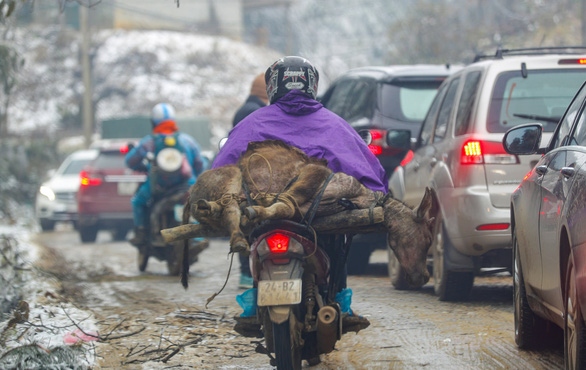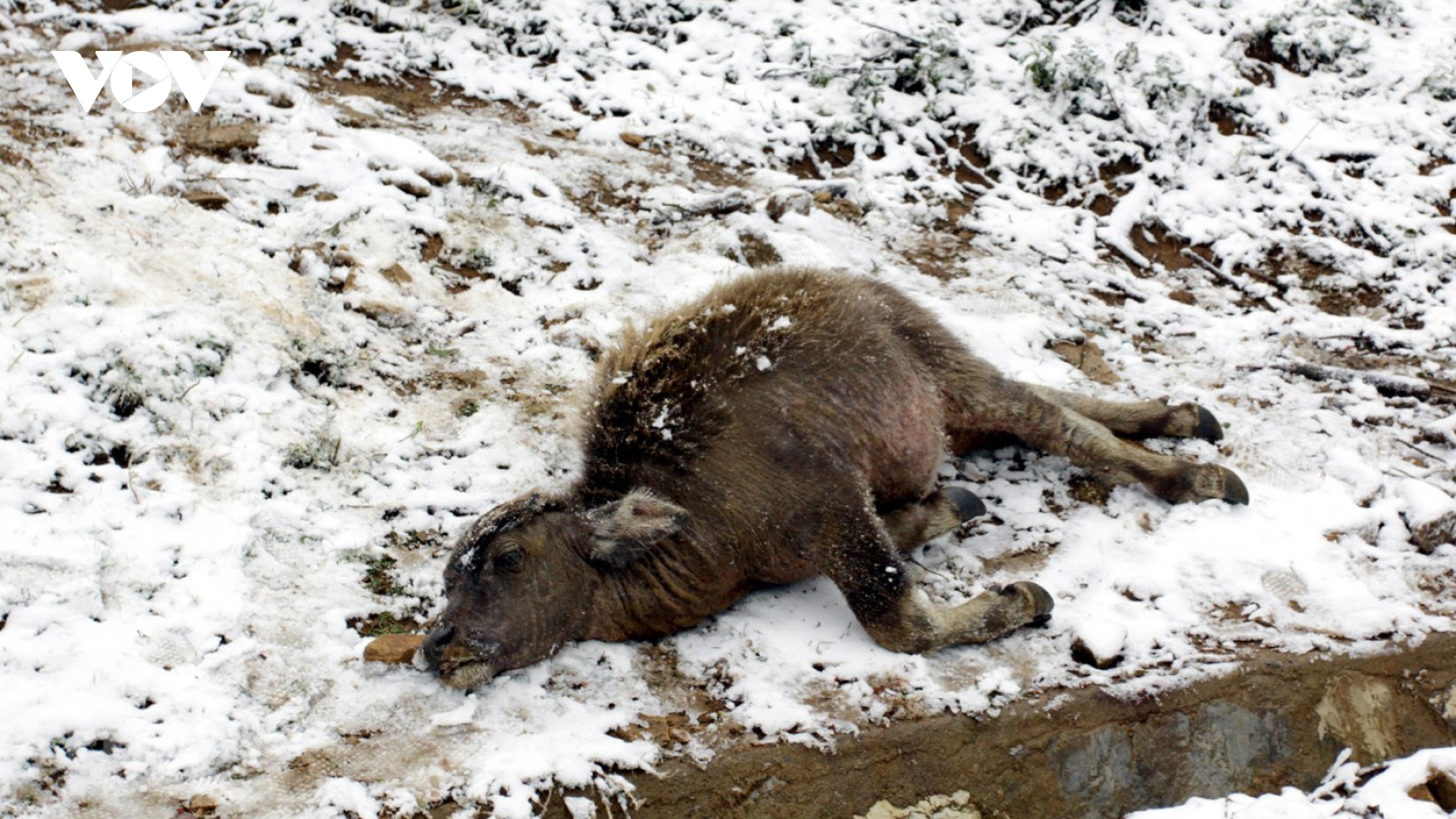Extreme cold spell kills over 200 cattle in northern Vietnam
VOV.VN - More than 200 cattle, including buffaloes and cows, have died over the past two days due to the severe cold spell which has hit northern Vietnam.

Ta Cong Huy, head of Lao Cai province’s Steering Committee on Disaster Prevention and Rescue, described how heavy snow spread to Sa Pa and Bat Xat districts on January 11. A thick layer of snow between 10cm and 20cm rapidly developed and badly impacted livestock breeding.
By January 11, approximately 93 hectares of flower and vegetable plantation had been covered in snow, leading to 1,050 pots of orchid flowers being destroyed and 45 buffaloes killed in Lao Cai province.
In total the cold weather caused losses in excess of VND2 billion, and the figure is set to increase as the extreme cold spell is forecast to continue over the coming days, Huy noted.
Hoang Van Vien, vice director of Dien Bien province’s Department of Agriculture and Rural Development, said local authorities have urged farmers to deal with the devastating impact of the harsh weather, although due to prolonged drops in temperature, many cattle have died because of the cold.
The entirety of Dien Bien province reported that 91 buffalos and cows have died, with losses estimated to be at VND1.3 billion.
A similar situation occurred in Son La province, where over 90 cattle have been killed due to periods of extreme cold spell and frost.

